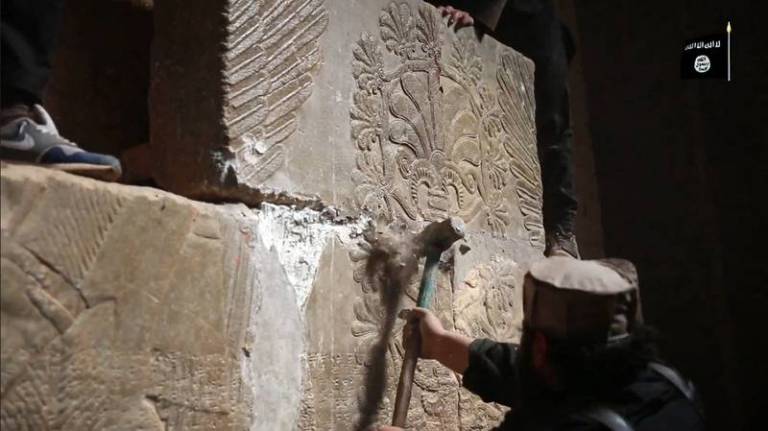Rival elites leave Iraq’s rich cultural heritage crumbling
17 May 2022

BY PAUL PEACHEY
Iraq’s rich cultural heritage is being lost at “unprecedented rates” after destruction by wars and ISIS because of cash shortages, plundering and feuds between rival groups seeking to put their own imprint on the country’s history, a report has said.
Monuments from thousands of years ago are crumbling because of a shortage of funds and the lack of a strong central body to ensure that ancient relics are protected and preserved, the Chatham House think tank in London says.
A local archaeologist told the report’s authors that “tens” of buildings were falling down in the ancient capital of Babylon because they could not afford emergency scaffolding or to carry out urgent conservation work.
“All of historic Baghdad is falling apart and that’s a political decision,” said Dr Mehiyar Kathem, a senior researcher in the history department at University College London and the lead author of the research paper Cultural Heritage Predation in Iraq.
“A minister told me that the political parties were more interested in land and its commercial values of that area, and were waiting for it to collapse. It’s prime real estate.”
The report says that Iraq’s cultural treasures and 15,000 archaeological sites have become a battleground between competing Sunni, Shiite and Kurdish political elites to promote their past and future visions of Iraq, the report says.
Before the 2003 Second Gulf War, Saddam Hussein’s regime was in charge of the country’s historical centres. Control of the sites has now fractured with new institutions funded to promote particular ethnic and religious interests, the report said.
The competition has compounded decades of neglect, sanctions and destruction of Iraq’s cultural treasures during war and by ISIS, which attacked historic and religious sites to promote its own extremist worldview.
Iraq’s long history is one of its richest resources, with heritage-based tourism having the potential to be the country’s second-most valuable industry behind oil and gas, the report says.
But its potential also makes it prey to continued looting and selling of its riches overseas.
The country’s culture minister lacks the funds to protect the sites and relies on paying local communities to oversee some of the most sensitive sites with mixed success, said Dr Kathem.
Iraq has lost hundreds of thousands of pieces from looting since the First Gulf War in 1991 and continued through years of occupation, sanctions and economic hardship.
Authorities have been unable to protect the remains and relics of the ancient city of Nimrud, just south of Mosul. Once the capital of the Assyrian empire that ruled large parts of the Middle East, it was levelled by ISIS before being retaken in late 2016.
“Several years on from 2017, thousands if not hundreds of fragments of destroyed Assyrian-era cultural monuments in Nimrud have remained on the ground, suffering from the effects of rain and harsh summers,” said the report.
Read article here
 Close
Close

